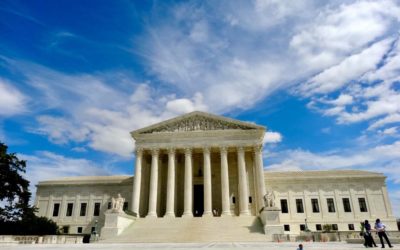The Roadside Drug Test...AgainHouse bills 4390 and 4391The proposed House bills 4390 and 4391 would enable law enforcement to administer tests aimed at assessing driver impairment; however, these testing devices do not provide information regarding the level of...

People v. Chandler Case: Protecting Fourth Amendment Rights
Court of Appeals of Michigan
PEOPLE of the State of Michigan, Plaintiff-Appellee, v. Javarian CHANDLER, Defendant-Appellant.
No. 368736
Decided: June 27, 2024
Before: Borrello, P.J., and Swartzle and Young, JJ.
Introduction
In the People v. Chandler case, the Michigan Court of Appeals addressed an important issue related to search and seizure rights.
Background
Javarian Chandler found himself in legal trouble when he was on probation. As a condition of his probation, he had to comply with certain requirements, including submitting to searches of his person, property, and computer without the need for a search warrant. “Defendant’s Acknowledgment” section found on the SCAO, Form MC 243 (Sept 2022), p. 3:
But was this constitutional?
What Happened?
On May 17, 2023, Chandler was among the probationers and parolees on Officer Thomas’ compliance check list. This marked the first encounter between Officer Thomas and Chandler.
Officer Thomas and three Detroit Police officers visited the house listed on Chandler’s paperwork, owned by Chandler’s cousin. When Chandler’s cousin and mother answered the door, they initially denied Chandler’s presence. However, after Officer Thomas explained that a search was required due to Chandler’s parole, Chandler’s cousin allowed entry.
In Chandler’s room, officers discovered a loaded handgun. Despite being prohibited from owning weapons, Chandler was charged with felon in possession of a firearm, felon in possession of ammunition, and two counts of possession of a firearm during a felony, as a fourth-offense habitual offender. Chandler unsuccessfully sought to suppress the weapon found during the search, leading to an interlocutory appeal following the trial court’s denial of his motion.
The Search and Legal Question
The search in question took place in Chandler’s bedroom, conducted by Detroit police officers and a probation agent as part of Chandler’s conditions of probation. The critical issue was whether a warrantless search of a probationer’s property violated the Fourth Amendment.
Did such a search require reasonable suspicion or an express waiver by the probationer?
Chandler’s cousin, who lived in the same house, granted consent for the search. However, defense counsel argued that Chandler’s cousin lacked the authority to authorize the search of Chandler’s bedroom. Additionally, they contended that Chandler’s cousin did not consent freely or voluntarily.
Court’s Ruling
The Michigan Court of Appeals held that a warrantless search of a probationer’s property without reasonable suspicion or an express waiver is unconstitutional. In essence, probationers retain Fourth Amendment rights, even while under specific conditions during their probation.
Implications
This decision underscores the delicate balance between law enforcement’s need to monitor probationers and an individual’s right to privacy. By upholding Fourth Amendment protections, the court ensures justice while respecting individual liberties.
Contact Komorn Law
If you have legal questions or need assistance, don’t hesitate to reach out to our experienced attorneys at Komorn Law. You can call us at (248) 357-2550 or visit our website at KomornLaw.com for personalized legal guidance.
And now for something completely different….
Michigan Law: False Report of Crime
According to MCL Section 750.411a, intentionally making a false report of a crime to law enforcement or emergency services is a crime. Depending on the severity, it can range from a misdemeanor to a felony.
For instance:
False report of a misdemeanor: Up to 93 days in jail or a $500 fine.
False report of a felony: Up to 4 years in prison or a $2,000 fine.
If the false report results in injury or death, the penalties escalate
Recent

Criminal Law FAQs – Theft Crimes
Michigan Criminal Laws FAQs Theft CrimesAccording to Michigan State Law (Michigan Compiled Laws - MCL), Theft Crimes generally involve the unlawful taking of someone else's property with the intent to deprive them of it, either permanently or for a significant period....
Other Articles
SCOTUS Opinion, SHEETZ v. COUNTY OF EL DORADO, CALIFORNIA
The Constitution provides “no textual justification for saying that the existence or the scope of a State’s power to expropriate private property without just compensation varies according to the branch of government effecting the expropriation.”The case in question...
Maker of CBD products asks court to decide
The Petitions of the Week column highlights a selection of cert petitions recently filed in the Supreme Court. A list of all petitions we’re watching is available here. Organized crime, from the mafia to small-time money laundering schemes, often evades criminal...
Supreme Court Ruling Strengthens First Amendment Protections: Implications for Michigan’s Threat Speech Laws
In a significant legal development, the United States Supreme Court has recently issued a ruling that has far-reaching implications for individuals facing charges related to "threat speech" in Michigan. The case of Counterman v. Colorado, decided on June 27, 2023,...
Listen Live to the US Supreme Court
Listen live to arguments in the Supreme Court. On Monday, the Supreme Court is set to hear arguments over the phone for the first time ever due to the coronavirus pandemic; they'll hear 10 cases remotely from now until May 13. But that's not the only history being...





























